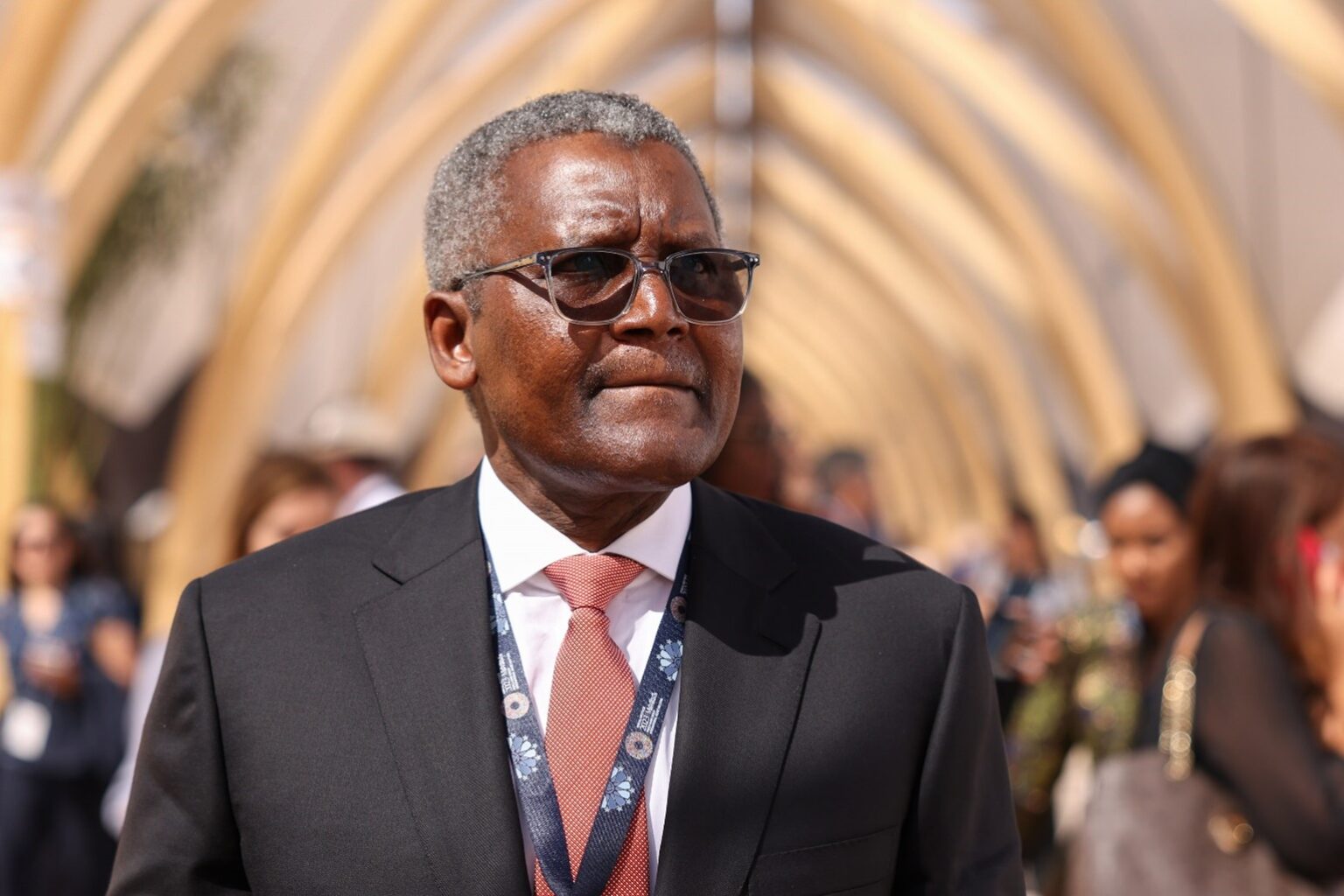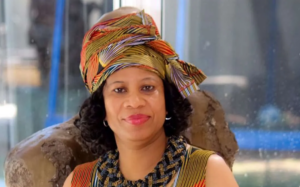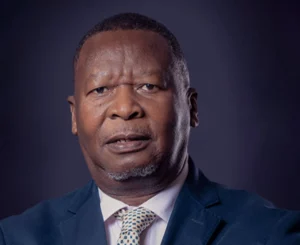Introduction
Are you ready to embark on a journey of discovery, to be captivated by tales of grit, innovation, and the unwavering pursuit of dreams? Then step right in. This collection of African entrepreneur success stories is your passport to a world brimming with possibility, where you’ll witness the extraordinary, glean invaluable wisdom, unleash your inner champion, broaden your horizons, and become an active participant. Let these stories ignite your passion, empowering you to contribute to the vibrant future of African business.
1. Aliko Dangote

Aliko Dangote’s story is a compelling narrative of resilience, vision, and determination. His journey from a commodities trader to the richest man in Africa is an inspiring example if you are an aspiring entrepreneur.
Pros
- Shapes a forward-thinking vision that guides the organization and its stakeholders.
- Creates employment, fostering economic growth and stability within communities.
- Gives back to society through impactful initiatives, contributing to community welfare.
Cons
- Raises questions about potential monopolistic practices, impacting fair competition.
- Highlights existing challenges in infrastructure development, hindering seamless operations.
- Nationality: Nigerian.
- Birth: He was born on April 10, 1957.
- Business: In 1981, he founded the Dangote Group, which now operates across multiple sectors.
- Richest Man in Africa: Dangote’s net worth places him at the top of Africa’s wealthiest individuals.
- Legacy: His legacy extends beyond wealth; it lies in his impact on Nigeria’s economy and society
2. Strive Masiyiwa

Strive Masiyiwa’s entrepreneurship success story stands out as a compelling narrative of vision, resilience, and transformative impact. His journey, from Zimbabwean roots to becoming a billionaire entrepreneur, offers valuable insights for aspiring business leaders.
Pros
- Demonstrates visionary leadership through the founding of Econet Wireless.
- Navigates challenges successfully, leading to pan-African expansion.
- Commits to philanthropy, creating a positive social impact.
- Exhibits resilience, overcoming obstacles on the path to billionaire status.
Cons
- Faces hurdles such as government opposition and economic instability.
- Receives some criticism for certain business practices in specific countries.
- Raises questions about the ongoing connection to Africa, with the base of operations primarily in London now.
- Nationality: Zimbabwean
- Birth and Education: Born on January 29, 1961.
- Business Ventures:
- Strive founded Econet Wireless in 1998, the first mobile telecommunications company in Zimbabwe.
- Econet expanded across Africa, operating in countries like South Africa, Botswana, and Lesotho.
- He is also the founder and executive chairman of Cassava Technologies, an international technology group.
- Net Worth: Places him among the billionaires.
- Legacy: His legacy is that of a pan-African success story.
3. Folorunsho Alakija

Folorunsho Alakija defies boundaries, triumphing in fashion and oil as a Nigerian woman. Her resilience in battling the Nigerian government for her oil block demonstrates unwavering perseverance. Committed to positive impact, she channels success into philanthropy through initiatives like the Rose of Sharon Foundation. Witness her adaptability and daring spirit in the seamless transition from fashion designer to oil tycoon.
Pros:
- Faces numerous challenges like gender bias and legal battles, emerging stronger.
- Achieves success in both creative (fashion) and corporate (oil) sectors.
- Uses her resources to empower others through foundations and scholarships.
- Inspires women and aspiring entrepreneurs globally.
Cons:
- Engages in a 12-year legal dispute over oil block ownership.
- Faces scrutiny as some question the source of her initial capital.
- Nationality: Nigerian.
- Birth: She was born on July 15, 1951.
- Business: Folorunsho Alakija is an accomplished entrepreneur. She serves as the Executive Vice Chairman of FAMFA Oil Ltd, an oil exploration and production company. Additionally, she is the Managing Director of the Rose of Sharon Group.
- Net Worth: $1 billion as of February 2024
- Legacy: Folorunsho Alakija’s journey exemplifies resilience, entrepreneurship, and the power of determination.
4. Ashish J. Thakkar
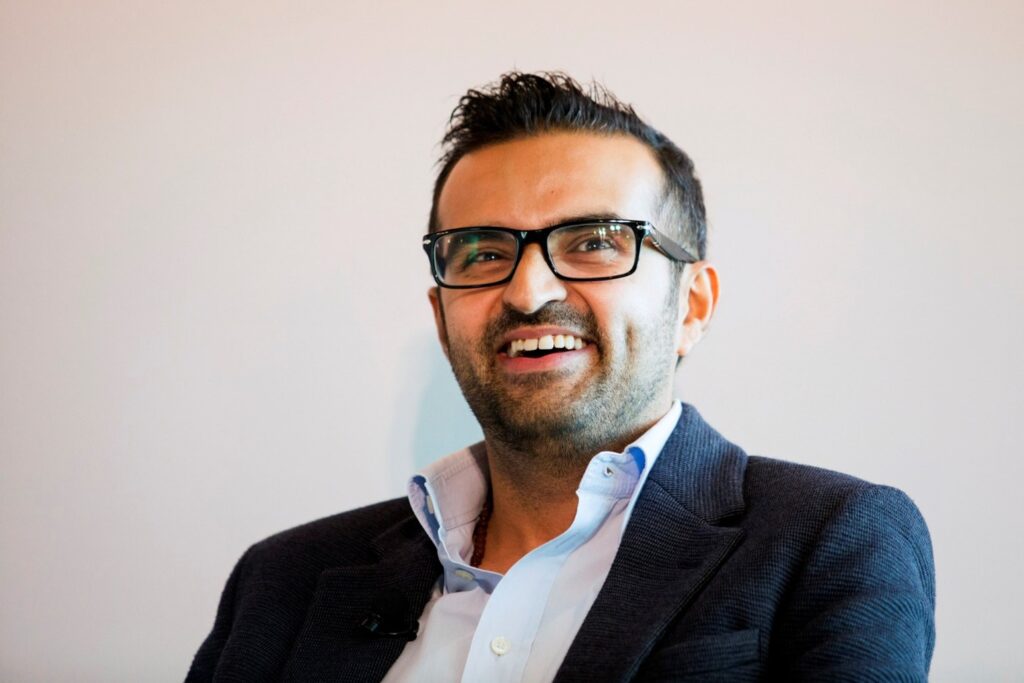
Ashish J. Thakkar’s entrepreneurship success story stands out as a compelling narrative of resilience, determination, and a profound commitment to making a positive impact in Africa. His journey from surviving tragedy to becoming Africa’s youngest billionaire is a testament to the transformative power of entrepreneurship.
Pros:
- Demonstrates resilience amid tragedy
- Ignites early entrepreneurial spark
- Champions a pan-African vision
- Empowers others
- Embodies ethical leadership
Cons:
- Maintains a limited geographical focus
- Raises relatability concerns
- Nationality: Born in Uganda, Thakkar now resides in Dubai and actively operates across Africa.
- Background: He survived the Rwandan genocide, which fueled his determination.
- Business: Thakkar founded the Mara Group, a pan-African conglomerate with diverse holdings.
- Net Worth: His achievements include becoming Africa’s youngest billionaire.
- Legacy: Thakkar’s story inspires resilience, innovation, and positive impact through entrepreneurship.
5. Khadija Mohamed Elbedweihy

Khadija Mohamed Elbedweihy’s entrepreneurship success story is a compelling narrative of passion, innovation, and a commitment to transforming education through technology. Her journey, highlighted by the creation of PraxiLabs, showcases the impact of entrepreneurial spirit on addressing critical challenges in science education.
Pros:
- Innovates with PraxiLabs in science education.
- Democratizes practical learning globally.
- Gains recognition as ABH competition finalist.
- Expands PraxiLabs, uplifting education in key African countries.
- Inspires with a journey marked by persistence.
Cons:
- Faces competition in educational technology.
- Navigates complexities in scaling PraxiLabs.
- Presents resource constraints strategically.
- Overcomes challenges in virtual lab adoption.
- Ensures PraxiLabs’ long-term sustainability.
- Nationality: Egyptian
- Background and Passion: Khadija holds a Ph.D. in Human-Computer Interaction, driven by her passion for understanding computers and human-computer communication.
- Business: As PraxiLabs’ founder, Khadija offers 3D interactive science labs for practical university learning experiences.
- Recognition: Top 10 ABH 2021 finalist, Khadija’s dedication showcased PraxiLabs’ impact potential on African education.
- Commitment to Africa: Khadija aims to expand PraxiLabs, empowering students in Kenya, Nigeria, and South Africa.
- Legacy: Empowering education and bridging the gap between theory and practice in Africa
6. Ham Serunjogi
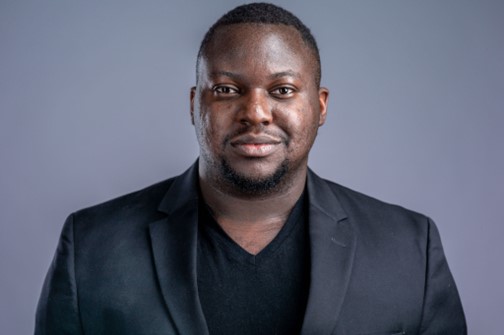
Ham Serunjogi, the co-founder of Chipper Cash, has revolutionized cross-border mobile money transfers in Africa. His unwavering determination, financial acumen, and global vision have made Chipper Cash one of Africa’s most successful startups, leaving a lasting impact on the fintech industry.
Pros:
- Innovates in Entrepreneurship
- Demonstrates Financial Acumen
- Creates Global Impact
- Leads a High-Profile Startup
- Applies Problem-Solving Skills
Cons:
- Limits Athletic Pursuits
- Navigates Risks and Uncertainty
- Nationality: Ugandan American.
- Birth: Born on January 1, 1994.
- Business: Ham Serunjogi is the co-founder and CEO of Chipper Cash, a financial technology company that provides mobile-based cross-border payment services in Africa. Chipper Cash facilitates free and instant peer-to-peer money transfers across seven nations, including Uganda, South Africa, Nigeria, the U.K., and the U.S. The startup has gained prominence and raised significant funding, making it one of Africa’s most successful and high-profile startups.
- Net Worth: Ham Serunjogi’s estimated net worth is around $2.2 billion.
- Legacy: Through Chipper Cash, Serunjogi is revolutionizing financial services, empowering people across borders, and leaving a lasting impact on the fintech industry in Africa
7. Bethlehem Tilahun Alemu
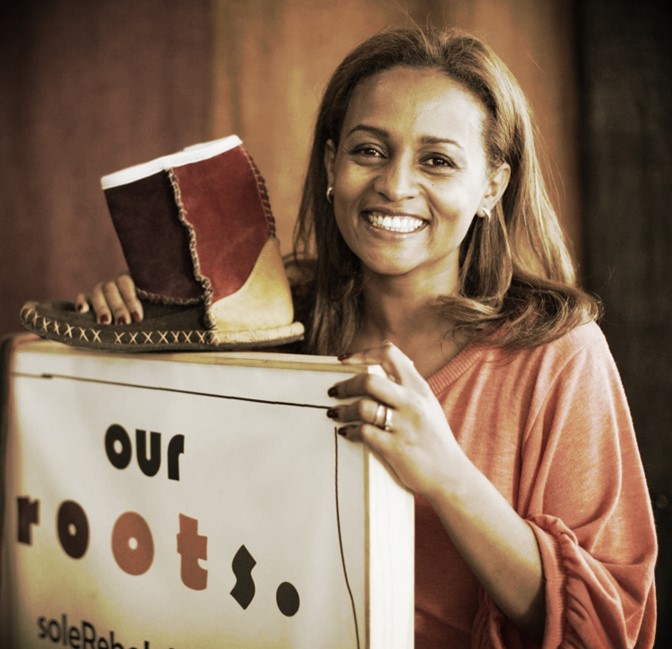
Bethlehem Tilahun Alemu’s entrepreneurship success story is a compelling narrative that showcases resilience, creativity, and profound community impact, making her a standout figure in the business world.
Pros:
- Creates sustainable jobs, and promotes local craftsmanship.
- Uses recycled tires, showcasing environmental commitment.
- Takes soleRebels to thirty countries, highlighting African entrepreneurship potential.
- Ventures into leather goods and coffee retail, showcasing versatility.
- Receives awards, breaking barriers for African entrepreneurs.
Cons:
- Limits sole options, potentially affecting consumer preference.
- Deals with diverse preferences, logistics, and cultural nuances globally.
- Balances growth with eco-friendly practices, navigating complexities.
- Faces competition, requiring continuous innovation and marketing.
- Navigates uncertainties, especially in the early stages of soleRebels.
- Nationality: Ethiopian
- Birth: Born in Addis Ababa, Ethiopia in 1980.
- Business: Founder of soleRebels, a footwear company that promotes sustainable jobs and creativity in her community. She also ventured into luxury leather goods with The Republic of Leather and coffee retail through Garden of Coffee.
- Net Worth: Undisclosed.
- Legacy: Bethlehem’s legacy lies in her entrepreneurial spirit, community upliftment, and showcasing African creativity on the global stage.
Overview of African Entrepreneur Success Stories

The stories of successful African entrepreneurs are not just tales of individual triumph; they’re powerful narratives that showcase resilience, innovation, and the immense potential of a continent brimming with talent. Whether you’re seeking inspiration or knowledge, or simply want to understand the nuances of this dynamic landscape, diving into these success stories can be incredibly rewarding.
How to Choose African Entrepreneur Success Stories
When approaching these narratives, the sheer number of diverse journeys can be overwhelming. Remember, you don’t have to devour them all at once! Instead, tailor your exploration based on what resonates with you.
- Industry Focus: Are you drawn to a specific sector like tech, fashion, or agriculture? Seek out stories of entrepreneurs who have thrived in that arena.
- Values & Impact: Does social responsibility pique your interest? Find entrepreneurs who prioritize ethical practices and community development alongside success.
- Personal Connection: Do you share any similarities with specific entrepreneurs, like their background, gender, or age? Their stories can offer relatable insights.
Pros & Cons of African Entrepreneur Success Stories
Pros:
- Inspiration: Witnessing someone overcome challenges and achieve remarkable feats can ignite your entrepreneurial spirit.
- Knowledge Sharing: Learn valuable lessons about business strategies, navigating cultural nuances, and adapting to unique circumstances.
- Role Models: Diverse success stories can shatter stereotypes and empower individuals from similar backgrounds to pursue their dreams.
Cons:
- Survivorship Bias: Not all entrepreneurial journeys succeed. Focusing solely on positive outcomes can paint an unrealistic picture.
- Limited Scope: Individual stories might not capture the broader economic and social complexities faced by many entrepreneurs in Africa.
- Potential for Bias: Be mindful of narratives that perpetuate stereotypes or glorify wealth accumulation without addressing social responsibility.
What to Watch Out For
- Authenticity: Verify the source of information and ensure it’s credible. Be wary of overly sensationalized or embellished stories.
- Context Matters: Understand the specific socio-economic and political environment in which the entrepreneur thrived. This helps you appreciate the challenges they overcame.
- Beyond Numbers: Don’t just focus on financial success. Look for stories that highlight the entrepreneur’s impact on their community, job creation, and sustainable practices.
Pro Tips

- Diverse Perspectives: Seek success stories from various industries and backgrounds to gain diverse perspectives and insights that can be universally applied.
- Extract Actionable Insights: Focus on actionable insights within the success stories that you can implement in your unique entrepreneurial context.
- Connect Personally: Embrace the personal connections within these stories. Relate to the challenges faced by entrepreneurs, understanding that your journey is uniquely yours.
- Strategic Adaptation: Use the success stories as a guide for strategic adaptation rather than a strict blueprint. Tailor the lessons to fit your business landscape and cultural nuances.
- Continuous Learning: Treat these success stories as a dynamic resource. Stay engaged with evolving narratives, continually learning and adapting your strategies for sustained growth.
Recap
As you embarked on a captivating journey through the inspiring stories of African entrepreneurs like Aliko Dangote, Strive Masiyiwa, Folorunsho Alakija, Ashish J. Thakkar, Khadija Mohamed Elbedweihy, Ham Serunjogi, and Bethlehem Tilahun Alemu. Discover resilience, innovation, and community impact in diverse sectors.
Navigate with authenticity, extracting actionable insights while being mindful of survivorship bias. Embrace diverse perspectives, connect personally, and adapt strategically. Continuous learning from these dynamic narratives will fuel your entrepreneurial spirit and contribute to the vibrant future of African business.


